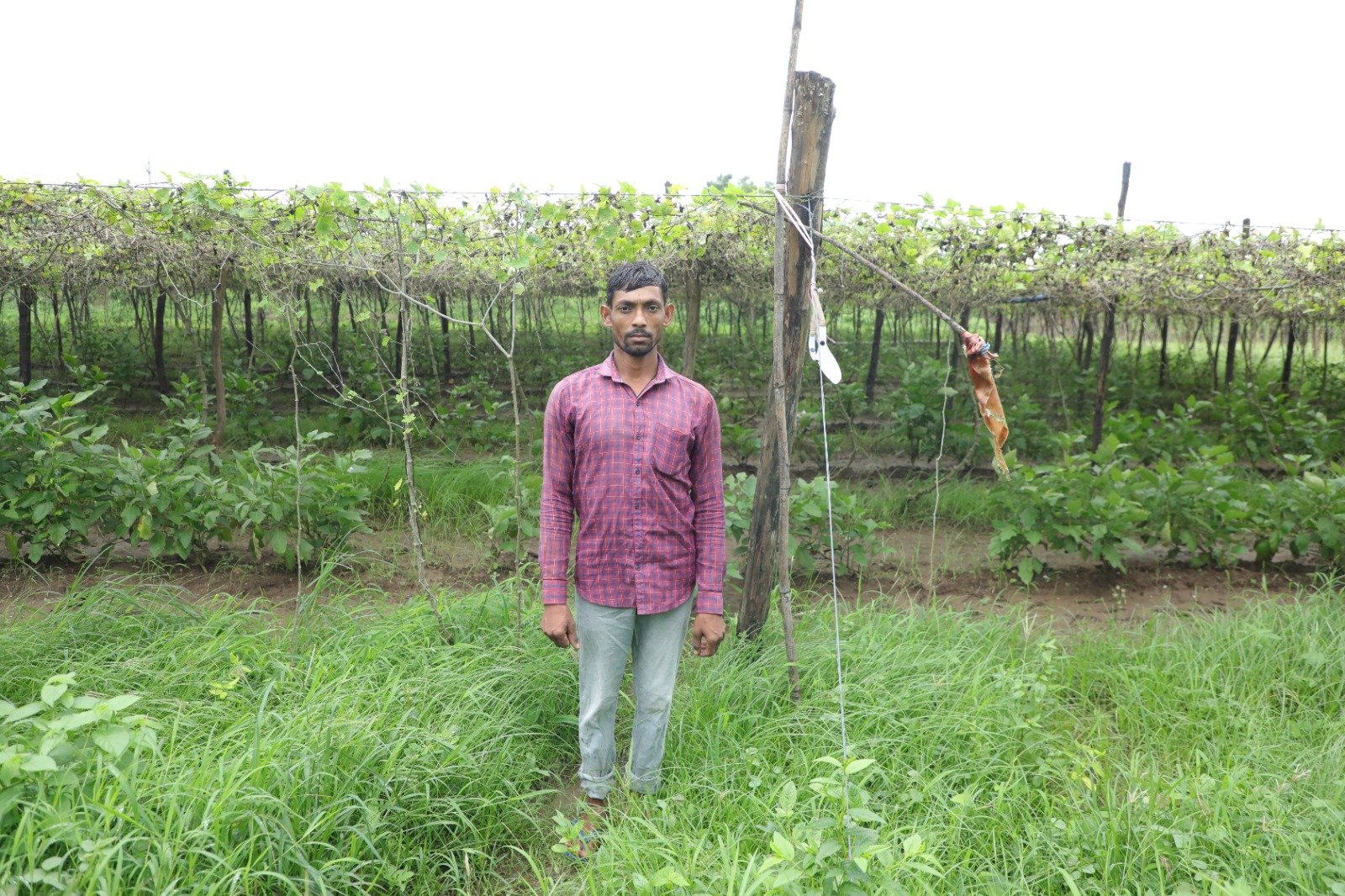Natural Farming Method: One Practice, Numerous Benefits – Farmers Reap Multiple Rewards Using the Panchamrut Method with Zero Expense
Panchamrut: The Pillar of Natural Farming – A Blend of Jeevamrut, Beejamrut, Mulching, Moisture, and Natural Pest Control Methods
Surat, Monday: In an effort to expand natural farming and realize the state government’s vision, farmers from Surat district are enthusiastically adopting natural farming methods. By learning about various government schemes and availing the benefits, these farmers are encouraging others to switch to natural farming as well. The most crucial component of this farming method is Panchamrut, which allows farmers to cultivate crops without any external fertilizers or resources. The method relies heavily on cow-based farming, where farmers use cow dung and urine to produce the necessary materials for crop growth.
The Panchamrut technique in natural farming consists of five pillars: Jeevamrut (bio-nutrient), Beejamrut (seed treatment), Mulching, Moisture Management (Waapsa), and Natural Pest Control. Jeevamrut is prepared using the cow dung and urine of indigenous cows and is applied to the soil to make it fertile. Beejamrut is used to treat seeds before sowing, which improves moisture retention in the soil and raises groundwater levels.
Application of Jeevamrut: For one acre of land, 200 liters of filtered Jeevamrut should be mixed with irrigation water or applied through a drip system. The mixture can also be sprayed on standing crops.
Preparation of Solid Jeevamrut: To prepare solid Jeevamrut, mix 200 kg of dried, sieved indigenous cow dung powder with 20 liters of Jeevamrut. Let this mixture sit in the shade for 48 hours, then dry it in a thin layer. Once dried, break it into a fine powder, which can be stored for up to a year. Before final tillage, 200 kg of solid Jeevamrut should be applied per acre, and during the crop cycle, 100 kg per acre.
Using Jeevamrut significantly increases the population of beneficial microorganisms in the soil, enhances moisture retention, and activates dormant soil nutrients, making them available to plant roots. This process improves the plant’s immunity and increases nitrogen availability.
With the cow dung and urine from just one indigenous cow, natural farming can be carried out on up to 30 acres of land. This method conserves water, protects the environment, and promotes human health. Additionally, natural pest control methods such as Nimastra, Agniastra, and Brahmastra are used to protect crops from pests. Dashparni extract and fermented buttermilk are used as natural fungicides.
Nimastra for Pest Control: For Nimastra, mix 10 liters of cow urine, 2 kg of cow dung, and 10 kg of neem leaves into 200 liters of water. Let the mixture sit covered in the shade for 48 hours, stirring for 5 minutes every morning and evening. Afterward, strain it and use it as a natural pesticide.
For Brahmastra, 20 liters of cow urine is mixed with paste from five different types of leaves like neem, karanj, castor, dhatura, and bael. Heat the mixture until it boils once, then let it cool for two days. Stir it for 5 minutes every morning and evening before straining and using it.
Agniastra includes ingredients such as cow urine, neem leaves, hot chili paste, garlic paste, and tobacco powder, which are boiled together to prepare a potent pest repellent.
Dashparni Extract: This multipurpose pest and fungus control mixture is prepared using cow urine, neem leaves, and other plant leaves. The extract is stirred and left to ferment for about 30-40 days before use. For application, 6-8 liters of Dashparni extract is mixed with 100-200 liters of water and sprayed over one acre of land.
Fermented Buttermilk: Fermented buttermilk, mixed with water, is an effective natural fungicide and can be used to strengthen the plants’ immunity and fight off infections.
For fungal control, Beejamrut can also be used. It is made by mixing cow dung, cow urine, lime, and soil from under a tree with water. After 24 hours, the treated seeds are ready to be sown.
In conclusion, the use of Jeevamrut and other natural farming methods in Gujarat is critical due to the deficiency of organic carbon, nitrogen, zinc, and sulfur in the state’s soil. By adopting these natural farming practices, farmers can reduce the use of chemical fertilizers and pesticides, improve soil fertility, and increase the availability of essential nutrients.



